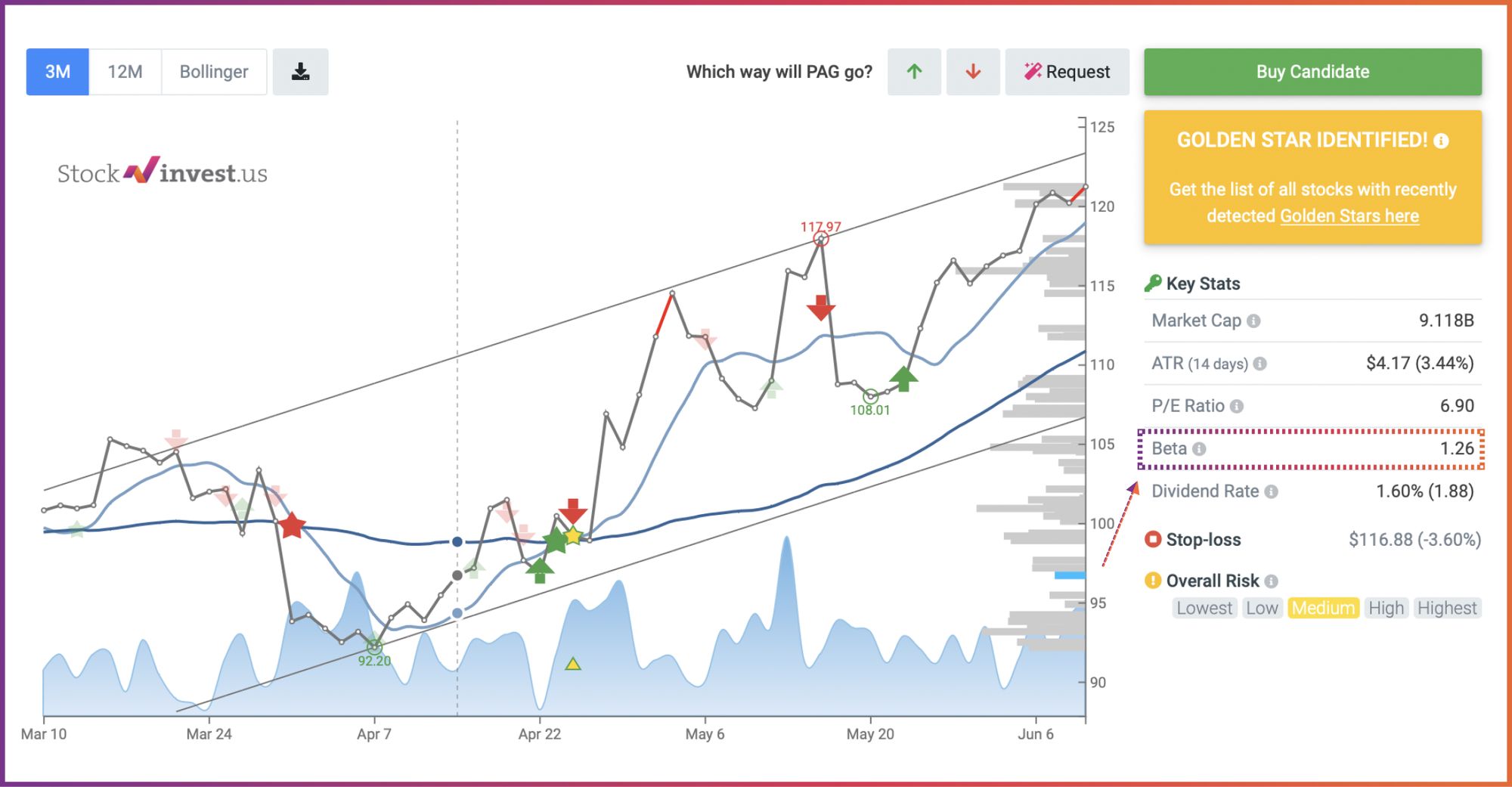Beta is one of the essential metrics that traders and investors use to measure a stock's risk. But what is Beta, and what does it mean when considering a stock's risk? In this blog post, we'll answer those questions and provide examples so you can understand how to use this concept for your trading strategy.
What does Beta tells you about stocks?
The definition of Beta is simple.
A high beta signals a stock that moves much, whereas a low beta (less than 1) signals a stock moving less than the market itself. The beta value is not telling you if a stock is a good or bad buy but merely the risk in relation to the market's average.
A beta of one means that the stock price will move up or down in value in tandem with the overall market. A beta greater than one indicates that the stock is more volatile than the market and thus carries more risk. A beta of less than one means that the stock is less volatile than the market and thus carries less risk.
For example, a stock with a beta of 2 is twice as volatile as the market. If the market goes up by 5 percent, you can expect this stock to go up by ten percent. Likewise, if the market declines by five percent, you can expect this stock to fall by 10 percent.
It's important to remember that Beta is not a measure of absolute risk. It's a relative measure, which means it only tells you how much risk you're taking in comparison to the market.
Beta is calculated using regression analysis. This is a statistical tool that measures the relationship between two variables. In this case, Beta is measuring the relationship between a stock's price and the overall market.

For Beta to provide handy insight, the market that is used as a benchmark should be related to the stock. For example, Beta makes the most sense when comparing stocks within the same asset class. A beta of 0.75 for a stock in the S&P 500 Index means that it is less volatile than the average stock in that index. In contrast, a beta of -0.50 for a stock in the Russell 2000 Index would indicate that it is more volatile than the average stock in that index.
This is where Beta becomes a helpful tool for investors and traders. By understanding Beta, you can compare the risk of different stocks to find one that's right for your portfolio.

For example, let's say you're trying to decide between two stocks in the same industry. Both stocks have a beta of one, which means they're equally volatile. But one stock has a higher price-to-earnings (P/E) ratio than the other. This suggests that the market is expecting faster growth from the company with the higher P/E ratio.
In this case, you would likely choose the stock with the higher P/E ratio because it has the same Beta but is expected to outperform the other stock.
The Advantages of Beta.
A beta is a helpful tool because it provides a standard way to compare the risk of different stocks. Understanding Beta can make more informed decisions about which stocks to buy and sell.
Of course, Beta has variations, such as the market index used and the period measured. For example, a beta measured over the last five years will differ from a beta measured over the previous month.
Why is it useful?
- Beta represents a good indication of whether a particular stock will experience more significant gains or losses than the overall market;
- Beta is a great way to manage the volatility of your entire portfolio. It helps you maintain stability and avoid significant losses during times when markets are fluctuating, making sure that all investments stay outperforming their benchmarks over long periods instead;
- It is not a complicated concept. Easy to understand - easy to use.
And what about the disadvantages of Beta?
Beta doesn't consider the company-specific factors that can affect a stock's price. So if you use only a fundamental approach for the analysis, it has minuses. For example, Beta won't tell you anything about a company's earnings, debt levels, or management team.
Beta also doesn't account for changes in market conditions. For example, a stock with a beta of one is just as volatile as the market. But if the market becomes more volatile, that stock will also become more volatile.
Additionally, Beta is a historical measure. It looks at how a stock has performed in the past and uses that information to predict how it will perform in the future. But past performance is not necessarily indicative of future results.
A few words in conclusion.
Beta is a valuable tool for analyzing the short-term risk of an investment. However, it becomes less meaningful as time passes because it is based only on historical data points - not future movements. To successfully implement a beta strategy, you need to take into account the fundamentals as well.
Thank you for reading!






